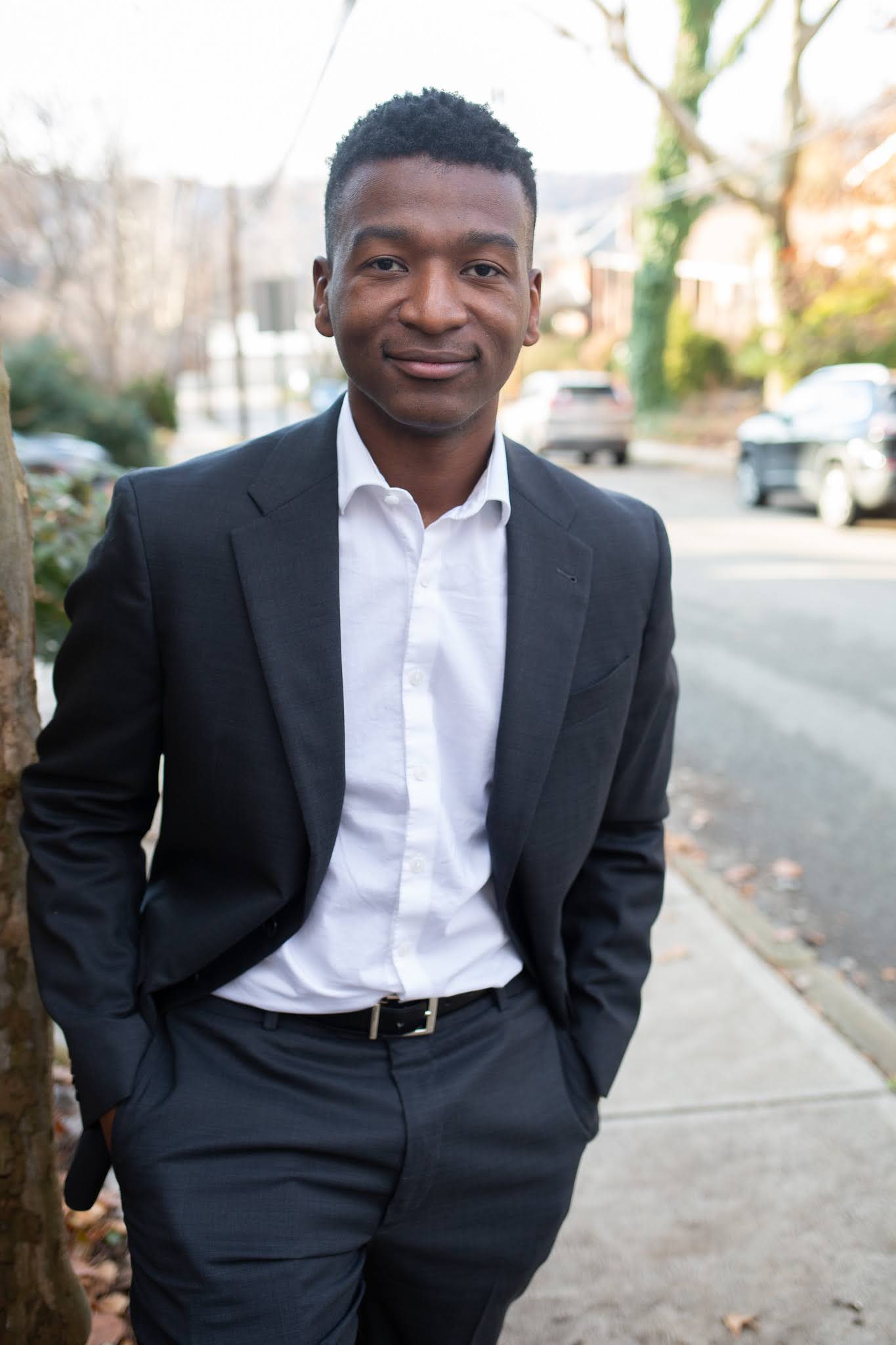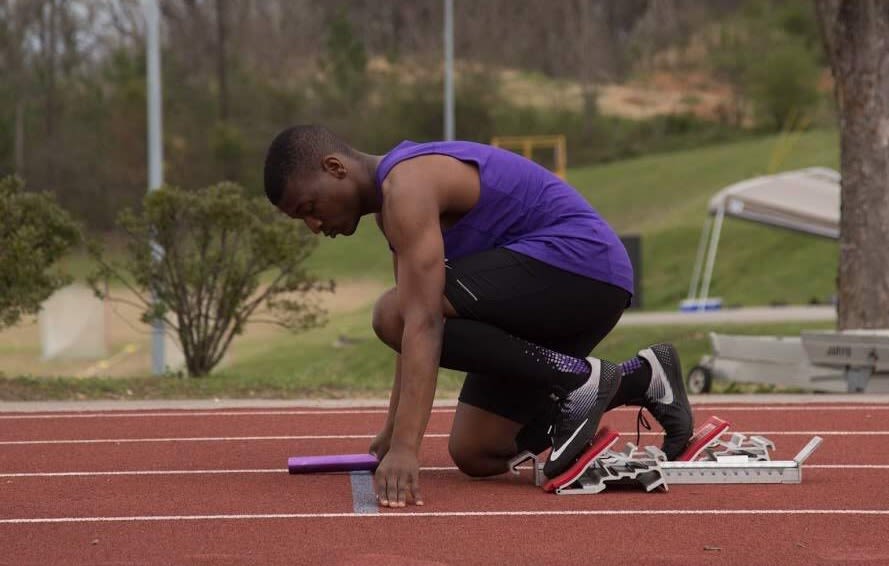PASSING THE BATON
Former Sewanee track athlete Miles Martin, C’20, has an idea for getting online purchases to your front door faster than ever. Now, his startup company hopes to hit the ground running.

In 2016, the same year that Miles Martin began his track career at Sewanee, a South African sprinter named Wayde van Niekerk set the current world record in the men’s 400 meters at the Rio de Janeiro Olympics, clocking in at 43.03 seconds. Martin didn’t run the 400, but he did run the 4x100-meter relay, an event that, with the help of three teammates, covers the same distance. Before he graduated in 2020, Martin’s team recorded a personal best of 43.01 seconds, edging out van Niekerk’s record time. Not surprisingly, no one except Martin noticed this obscure factoid because … why would they? The two events are completely different. Still, what Martin took away from this “achievement” was a simple and yet valuable logistical insight: A team is faster than an individual. In this case, four amateur sprinters from a small, Division III liberal arts college were faster as a unit than the world’s fastest man over the same distance.
Martin has since taken this concept and run with it, so to speak, making it the focal point of his innovative new business venture, a supply-chain logistics company called Relai. The company, due to launch in 2022 in Richmond, Virginia (and then, he hopes, nationally and internationally), aims to address a nagging question about e-commerce: In a world where on-demand meals can arrive at your doorstep in minutes, why does it take days to receive non-food deliveries? Martin’s research reveals that most shopping in North America takes place within seven miles from home. “If that’s the case, does a week to deliver something make sense?” he asks. “Does two days make sense? No. Especially if it’s something just across town.” Relai promises to deliver packages in less than an hour from stores located no more than seven miles away. It will do this by deploying crowd-sourced “sprinters” to relay packages directly from storefronts to homes, primarily by bicycle, scooter, or foot. Delivery legs will be broken up into manageable, three-mile segments, and if more than one leg is required, the sprinter will hand off the package to another sprinter at a strategically located “exchange zone,” with the second sprinter completing the delivery.
If Relai succeeds, it could remedy the bottlenecks that often occur at the tail end of deliveries and revolutionize the way packages are received. The business press has taken notice of the fledgling company, and one publication, Richmond Inno, named Martin one of its 10 most promising young innovators of 2021. For Martin, it all comes down to taking note of things that most people tend to overlook, like the similarities between the 400-meter dash and the 4x100-meter relay. “I see systems and structures very clearly,” he says. “I’ve always done that.”
One of the first lessons in systems and structures Martin can remember occurred when he was 14 and growing up in Pittsburgh. His mother needed a passport, and she filled out the application online. But rather than hit “send,” she turned to him and said, “If you understand the process, you can influence things. When you push send, you’re really just committing yourself to waiting in line. Your application is going to sit on someone’s desk for a while.” Rather than do that and wait for weeks for her passport, his mother packed him into the car, and they drove four hours to Washington, where she handed in her application personally. She got her passport in two days. “That’s when I started building a critical eye for how things flow,” he says.
Martin started his first business while at boarding school in Pawling, New York. Because he enjoyed walking into town every Saturday to buy himself a can of AriZona brand Arnold Palmer for 99 cents, he decided to schlep a few back to campus in his backpack to sell to students for double the price. Soon he was taking two backpacks. Then the New England winter kicked in, and he didn’t relish the frigid walk into town. “I realized I had to have a better supply chain,” he says. His parents had a membership at Costco, where he discovered he could buy a 30-can pack for $7. When his folks came for visits, they helped him stock up. “At its peak I was getting $4 a can—airport prices,” he says. “These were teenagers with way too easy money.”

As a track athlete at Sewanee, Martin ran the first leg of the 4x100-meter relay.
As a track athlete at Sewanee, Martin ran the first leg of the 4x100-meter relay.
The summer after his freshman year at Sewanee, Martin got a job at a bank in Pittsburgh, where the light workload allowed him to spend most of his days reading. “I read the bank manual, the whole thing,” he says. “I read the financial sections of six different newspapers.” When he returned to Sewanee, he was chatting with a friend who wanted to launch a new apparel business and had lots of startup questions. Martin found he knew all the answers. Another friend had just started an ultimate frisbee league but didn’t know how to set up a business entity to accept payments. Martin took care of it. Soon he was operating his own consulting business for startups out of his dorm room and taking on clients from across the country. “These were companies with less than 10 people,” he says. “I was good at taking a small, informal culture and translating it into policy.” Over the next two years he advised 60 clients. “I missed a lot of school,” he admits. “Don’t tell my parents.”
Martin’s most valuable takeaway from his Sewanee experience was his friendship with teammate Dillon Spann, C’21. Not only did Martin hand the baton off to Spann in both the 4x100 and 4x400-meter relays, but the two worked tirelessly to help found Sewanee’s Black Student Union. And, maybe most importantly, Relai never would have been created had it not been for Spann and a fateful pair of shorts. The story goes that while Martin was attending the Institute for Responsible Citizenship in Washington, a fellowship program for high-achieving African Americans, Spann called him up. Martin was hobnobbing with the likes of Colin Powell, John Lewis, and other African American luminaries, and Spann’s on the phone complaining because he can’t find reasonably priced shorts back at Sewanee. There are no good choices, he tells Martin. He can either pay full retail at the local outdoor retailer or drive two hours round-trip in the summer heat with a broken air conditioner to the TJMaxx in Murfreesboro, or order online, in which case his shorts wouldn’t arrive for days. The conundrum intrigued Martin, and the two began brainstorming. The result became Relai, which Martin and Spann founded with a friend of Martin’s from the Washington fellowship program, T. J. Tann.
Relai works like this: You order a scented candle from a store five miles away. The store receives the order. The shopkeeper checks to see if she has it. If she does, she presses “accept” and prepares the candle for delivery. Two sprinters are notified immediately. The app spits out a three-mile route, a two-mile route, and an exchange zone. The first sprinter ferries the package from the store to the exchange zone, a well-lit, open-air tower of 15-20 parcel lockers in a public space. He stores the candle in a locker. The second sprinter collects it and delivers it to your home. Relai eschews the use of interstate supply chains, national retail outlets, and warehouses in favor of all things hyperlocal. Martin lists many reasons for this. Communities tend to be loyal to mom-and-pop stores. Those same stores have often been overlooked by larger delivery firms and are thus much easier for Martin to recruit. Also, by staying hyperlocal and largely avoiding gas-powered vehicles, Relai will maintain a more modest carbon footprint.
In trying to determine where to launch the company, Martin unearthed a staggering amount of minutiae about American cities. “I know the average sidewalk width in over 50 cities,” he says. “I know about investments in bike lanes. I know the number of sunny days in different cities. I know the topographies, which places are hilly, which ones are flat.” Richmond ticked a lot of boxes— moderately hilly, lots of sunny days, plenty of bike lanes. And Martin’s research showed that mid-sized cities tend to be more loyal to local retailers. Currently, he’s beta testing the system in Richmond while continuing to raise money. The company has scored some early angel investors, but there’s a high entry fee in the supply-chain industry, especially for something as novel as Relai. “There’s no existing software for this,” he says. “It hasn’t been built yet. It can’t be cut and pasted. We’re on track, but we have nothing to compare it to.”
